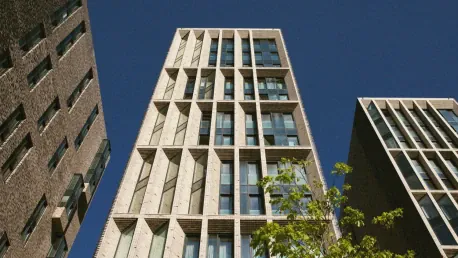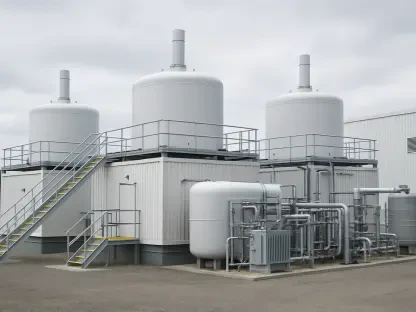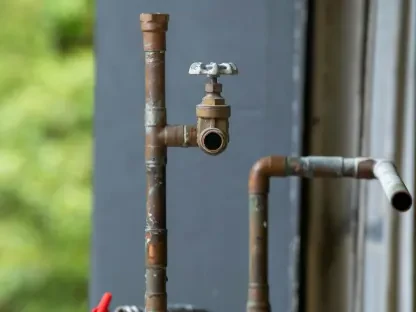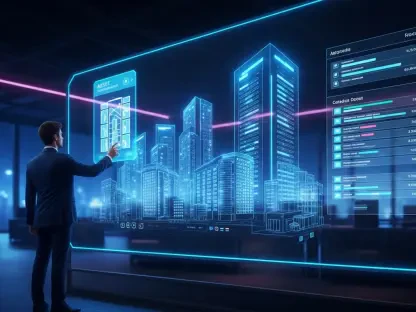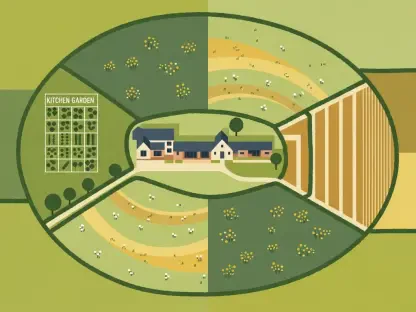In a bold move to champion sustainable and energy-efficient building practices across Europe, ABB’s Smart Buildings Division has announced a strategic collaboration with the World Green Building Council’s European Regional Network (ERN). This partnership is set to leverage ABB’s extensive expertise in electrical and automation technologies to align with the overarching sustainability goals of the European continent. As a Regional Knowledge Partner, ABB aims to foster innovative solutions and gain vital insights, all geared towards the critical objective of promoting low-carbon buildings. This collaboration underscores the imperative role of buildings in addressing global environmental concerns, considering that they account for a significant portion of final energy consumption and carbon emissions.
The Critical Role of Buildings in Energy Consumption
Buildings as Major Energy Consumers
Buildings play a pivotal role in the global energy landscape, accounting for approximately 30% of final energy consumption and 26% of global greenhouse gas emissions. These substantial figures highlight the profound impact that the building sector has on the environment and underscore the urgent need for sustainable practices. By focusing on the energy performance of buildings, stakeholders can achieve significant reductions in energy consumption and greenhouse gas emissions, thereby contributing to broader environmental goals. This collaboration between ABB and the World Green Building Council seeks to address these critical aspects by promoting energy-efficient technologies and practices.
The Energy Performance of Buildings Directive (EPBD), a key European sustainability framework, serves as a cornerstone in this endeavor by setting out requirements for energy performance in buildings. The partnership aims to align efforts with this directive, ensuring that the environmental footprint of buildings is minimized throughout their lifecycle. By leveraging ABB’s advanced automation and energy management technologies, the collaboration hopes to optimize energy use, integrate renewable energy sources, and enhance the overall intelligence of buildings. This integrated approach is designed to support the transition towards a more sustainable built environment, with buildings that are not only energy-efficient but also capable of adapting to future challenges.
The Path to Low-Carbon Buildings
Embracing sustainable building practices presents a significant opportunity to affect positive change. The collaboration aims to harness technical innovation and expert insights to develop solutions that reduce the carbon footprint of buildings. As cities and urban areas continue to grow, the need for smarter, more energy-efficient buildings becomes increasingly critical. These buildings must be equipped with the technology to not only utilize energy more efficiently but also to incorporate renewable energy sources seamlessly.
The partnership is poised to drive systemic change by fostering the development and implementation of these advanced technologies. ABB’s automation solutions, which include integrated building management systems, are designed to monitor and control various building functions, thereby optimizing energy use and reducing waste. Additionally, ABB’s energy management technologies enable the integration of solar panels and other renewable energy sources, ensuring that buildings can contribute to a cleaner energy grid. This holistic approach to building design and management is essential in creating a sustainable built environment that aligns with Europe’s long-term sustainability goals.
Recent Initiatives and Projects
The #BuildingLife Project
One of the notable initiatives spearheaded by the World Green Building Council is the #BuildingLife project, which aims to address Whole Life Carbon (WLC) in buildings through the development of an EU Roadmap. This comprehensive set of recommendations seeks to influence policies and practices across the European Union, providing a clear pathway for achieving net-zero carbon buildings. The project emphasizes the importance of considering the entire lifecycle of buildings, from construction to demolition, in order to fully understand and mitigate their environmental impact.
Through the #BuildingLife project, the World Green Building Council has also initiated 12 National Decarbonization Roadmaps tailored to specific national needs. These roadmaps provide detailed strategies for reducing carbon emissions in the building sector, addressing unique challenges and opportunities within each country. By collaborating with ABB, the World Green Building Council aims to leverage ABB’s technological expertise to implement these roadmaps effectively. This partnership underscores the shared commitment to driving meaningful change in the built environment, ensuring that buildings contribute to a sustainable future.
National Decarbonization Roadmaps
The National Decarbonization Roadmaps developed under the #BuildingLife project are pivotal in addressing country-specific challenges and opportunities in the journey towards net-zero carbon buildings. Each roadmap is meticulously crafted to provide actionable strategies that align with national policies and objectives, ensuring that efforts are coherent and synergistic. By focusing on the unique needs of each country, these roadmaps aim to maximize the impact of decarbonization initiatives, fostering the development of sustainable building practices tailored to local contexts.
ABB’s involvement as a Regional Knowledge Partner brings a wealth of expertise in automation and energy management to the table. This collaboration allows for the practical application of innovative technologies in the pursuit of the roadmap goals. ABB’s solutions are designed to optimize building performance, reduce energy consumption, and enhance the integration of renewable energy sources. By leveraging these technologies, the partnership seeks to create buildings that not only meet current sustainability standards but also anticipate and adapt to future advancements in environmental performance.
Impacts and Future Prospects
Advancing Smarter, More Resilient Buildings
ABB’s President of Electrification’s Smart Buildings Division, Mike Mustapha, highlighted the transformative potential of this collaboration in advancing smarter and more energy-efficient buildings across Europe. By aligning with ABB’s sustainability goals, the partnership seeks to address key trends such as urbanization and electrification, ensuring that buildings contribute to resilient and inclusive communities. ABB’s automation and energy management technologies are at the forefront of this endeavor, providing the tools needed to optimize energy use, integrate renewable sources, and enhance building intelligence.
The collaboration also emphasizes the importance of creating buildings that are not only energy-efficient but also resilient to future challenges. As urbanization continues to accelerate, the demand for sustainable urban spaces grows. By integrating advanced technologies, buildings can become more adaptable, capable of responding to changing conditions and continuing to perform efficiently over time. This future-oriented approach ensures that the built environment remains sustainable and resilient, supporting both current and future generations.
The Role of Partnerships in Achieving Net-Zero Goals
Buildings account for roughly 30% of global energy consumption and 26% of greenhouse gas emissions, playing a significant role in the energy landscape. These figures highlight the critical impact of the building sector on the environment and emphasize the urgent need for sustainable practices. By improving building energy performance, stakeholders can substantially reduce energy use and greenhouse gas emissions, thus contributing to broader environmental goals. ABB and the World Green Building Council have teamed up to tackle these vital issues by promoting energy-efficient technologies and practices.
The Energy Performance of Buildings Directive (EPBD) stands as a key European sustainability framework, setting requirements for building energy performance. This partnership aligns efforts with the directive, aiming to reduce the environmental impact of buildings throughout their lifecycle. Leveraging ABB’s advanced automation and energy management technologies, the collaboration seeks to optimize energy use, integrate renewable energy sources, and enhance building intelligence. This holistic approach fosters a more sustainable built environment with energy-efficient buildings capable of adapting to future challenges.
